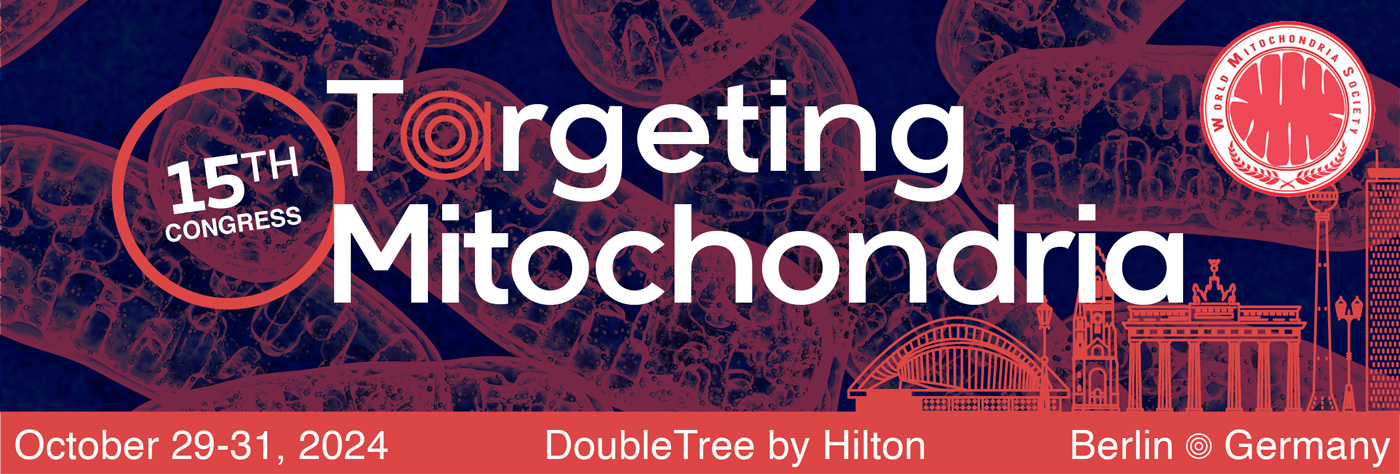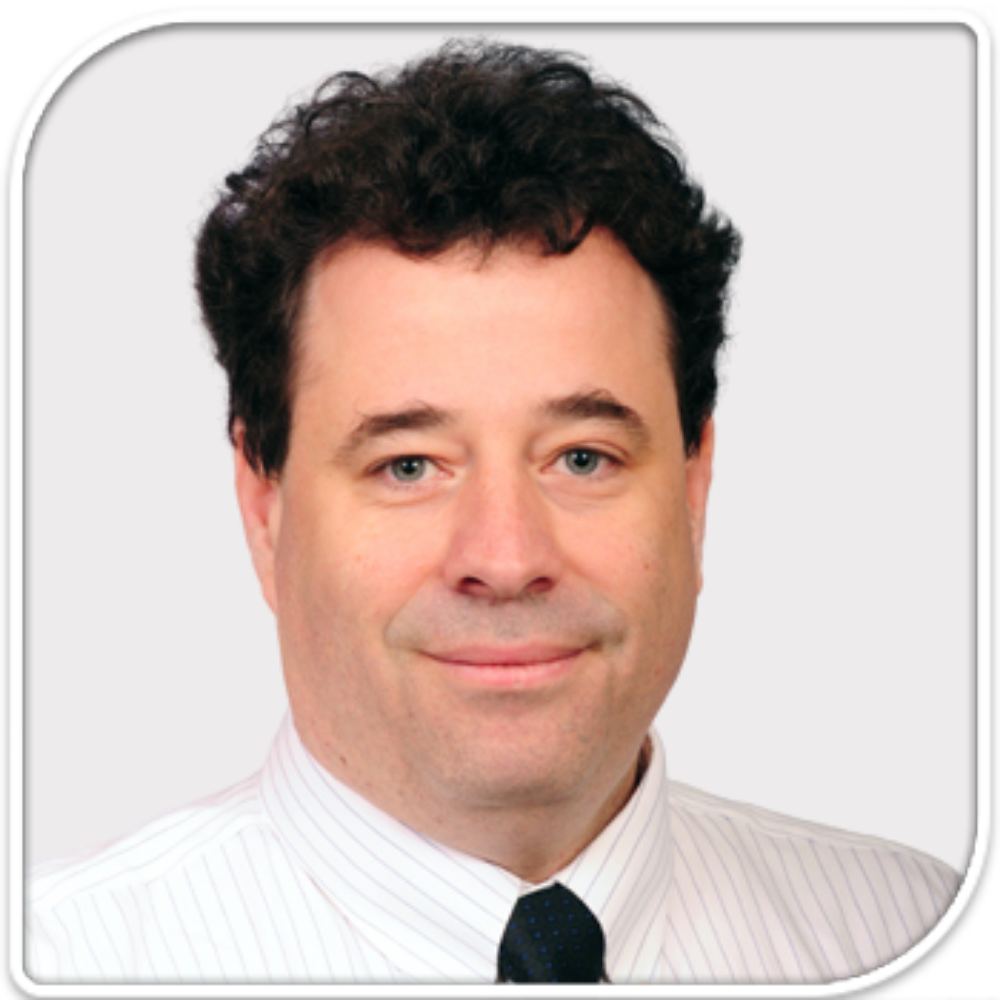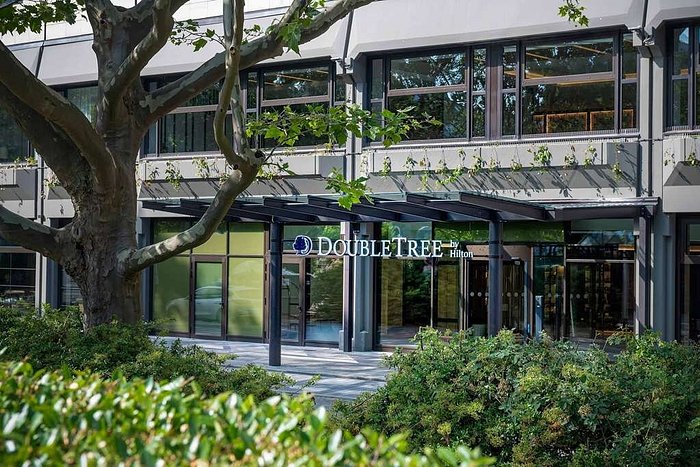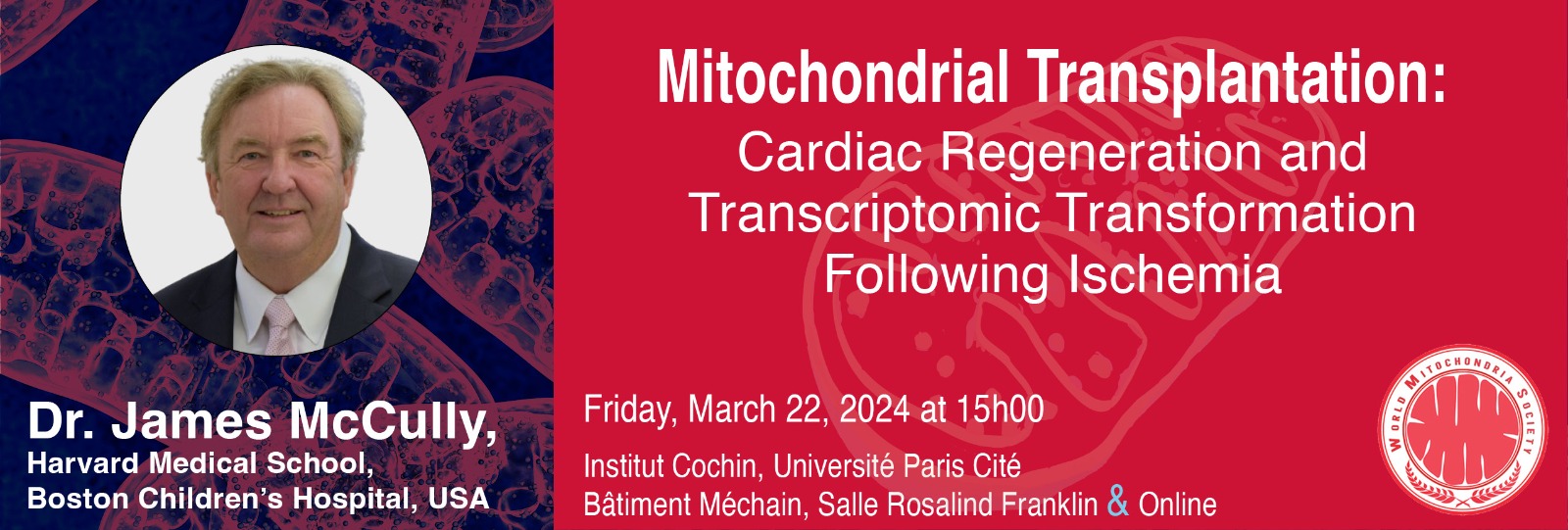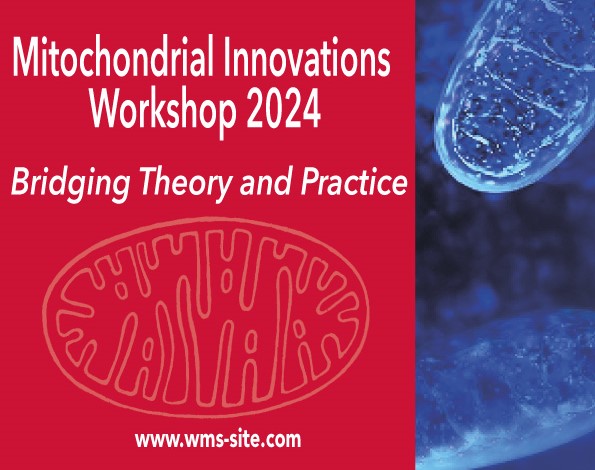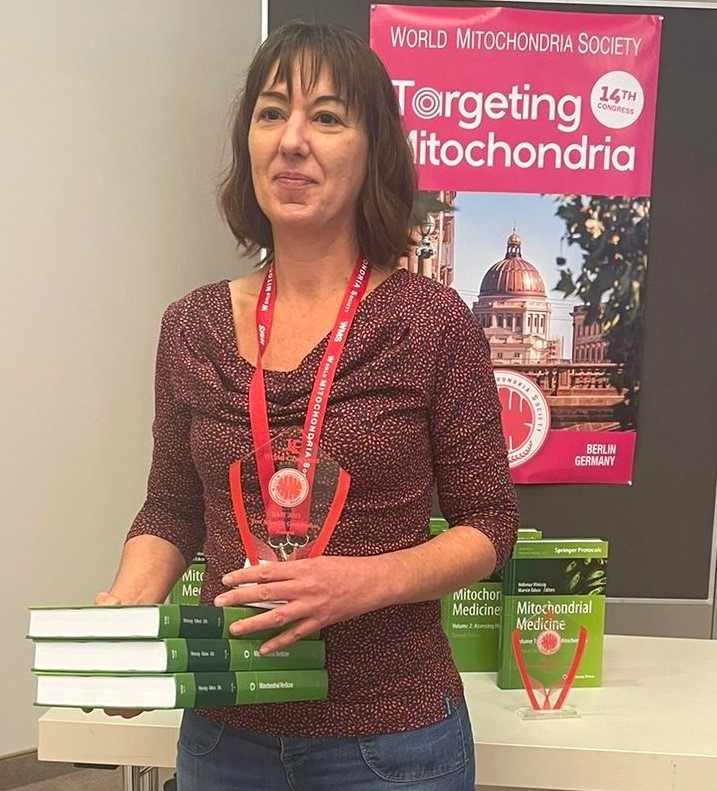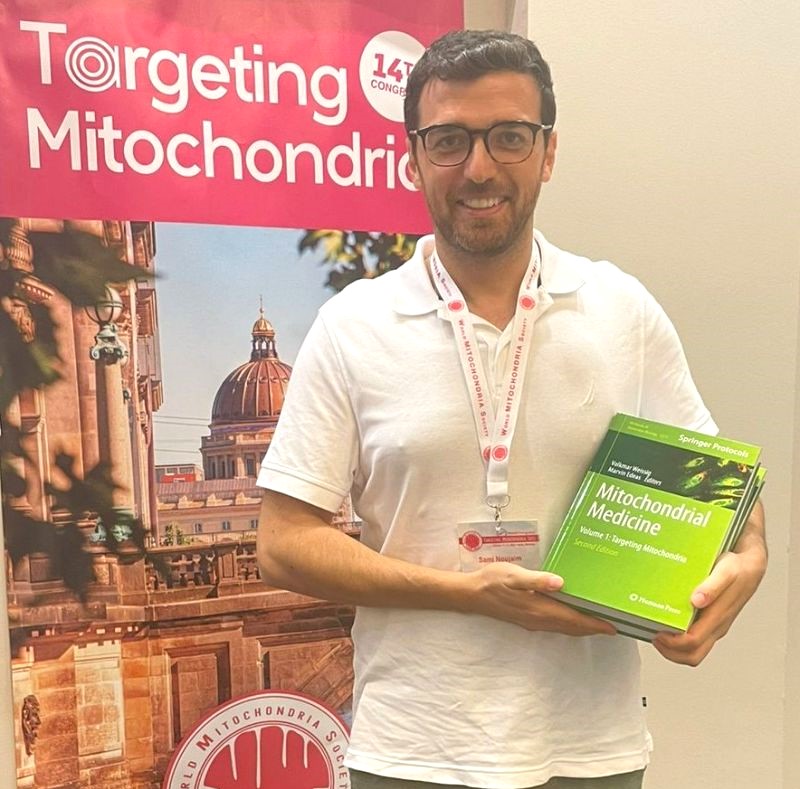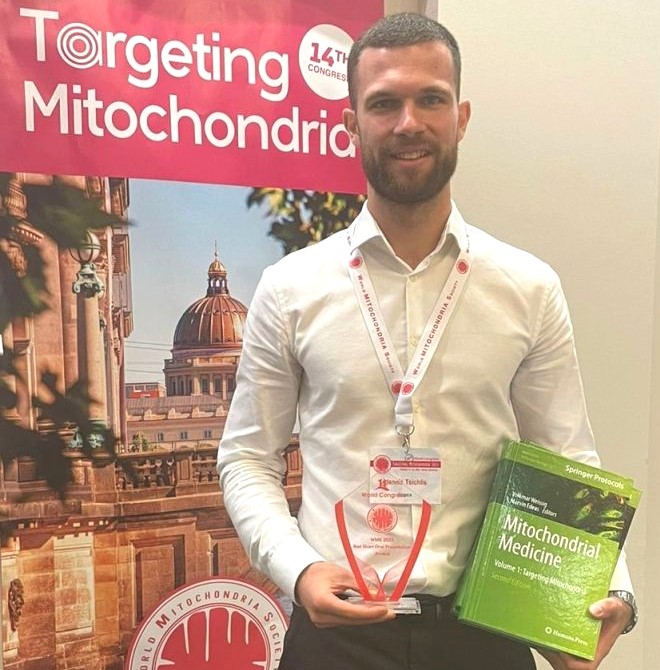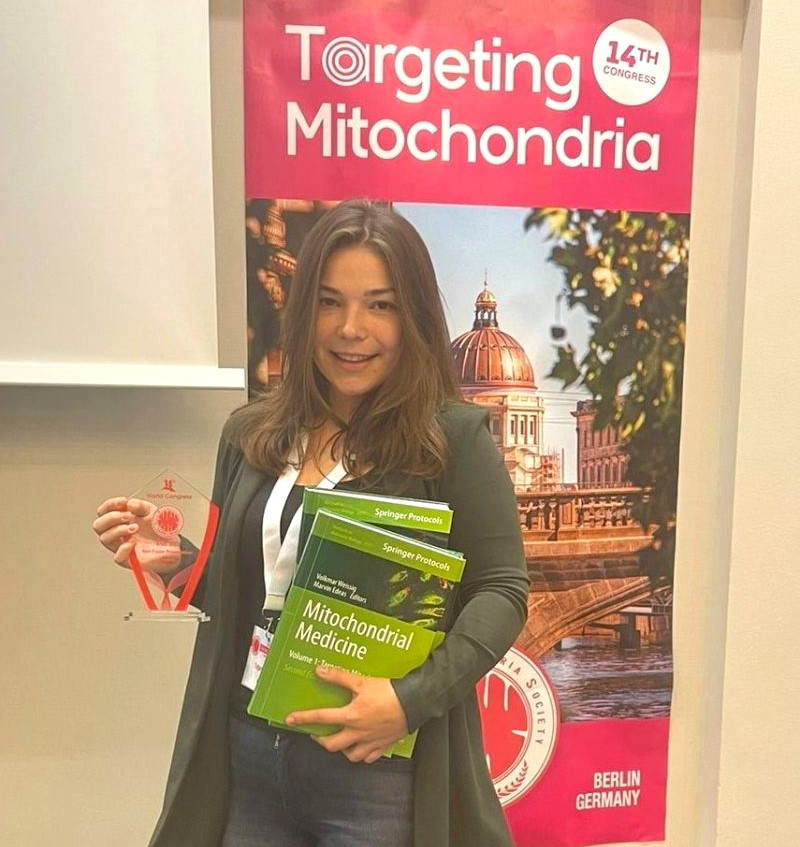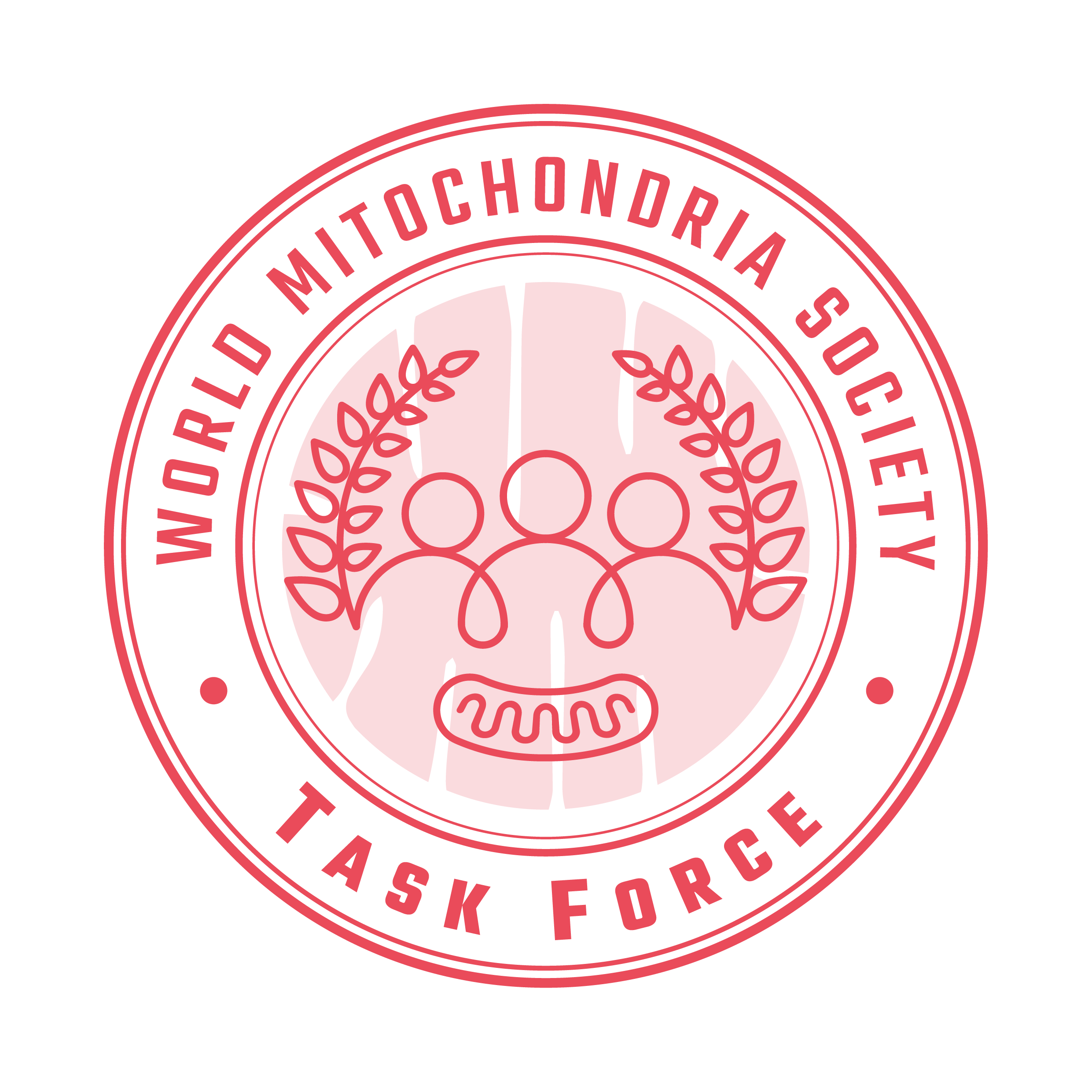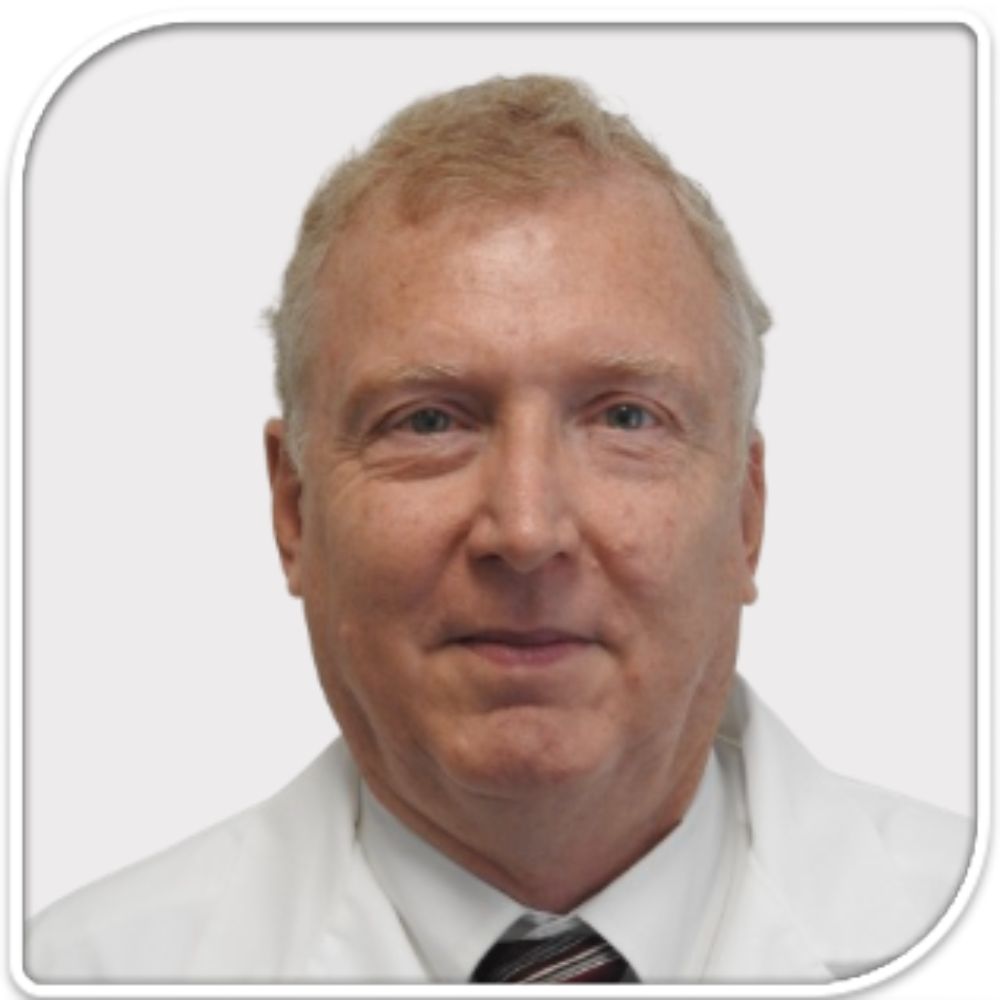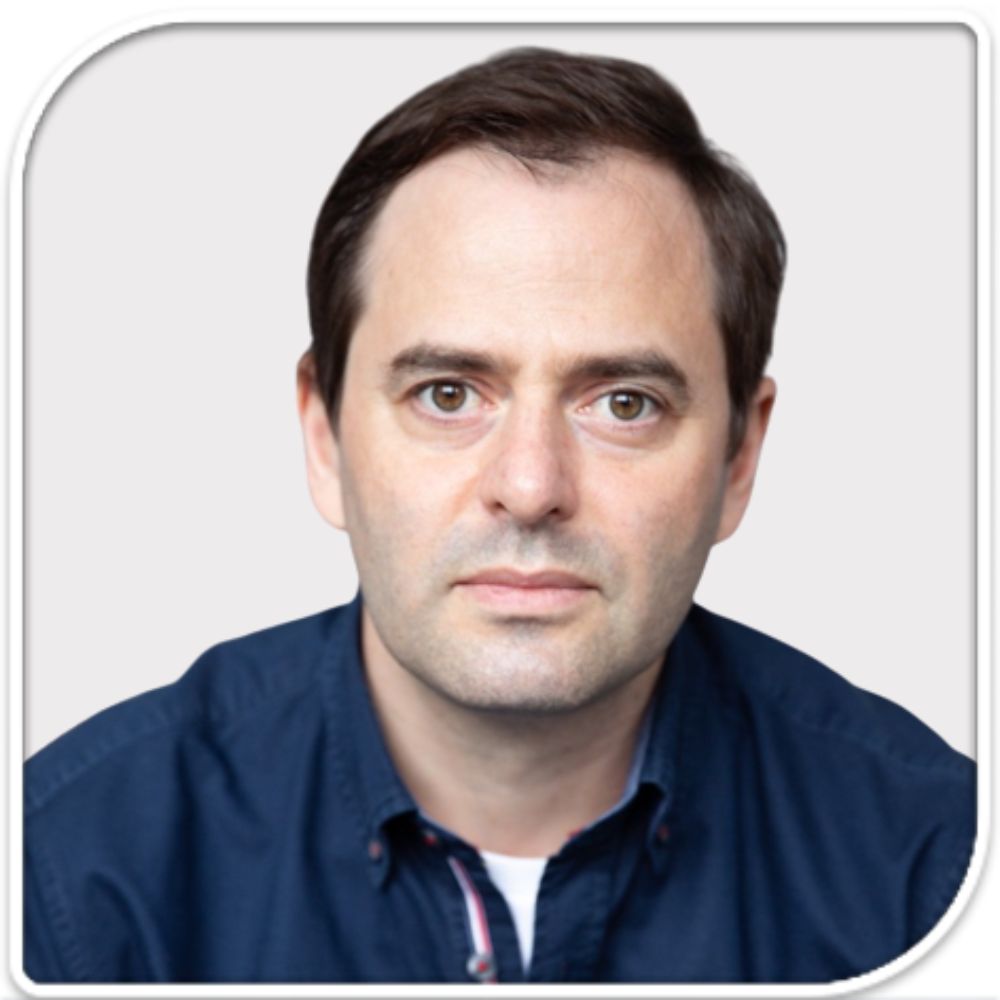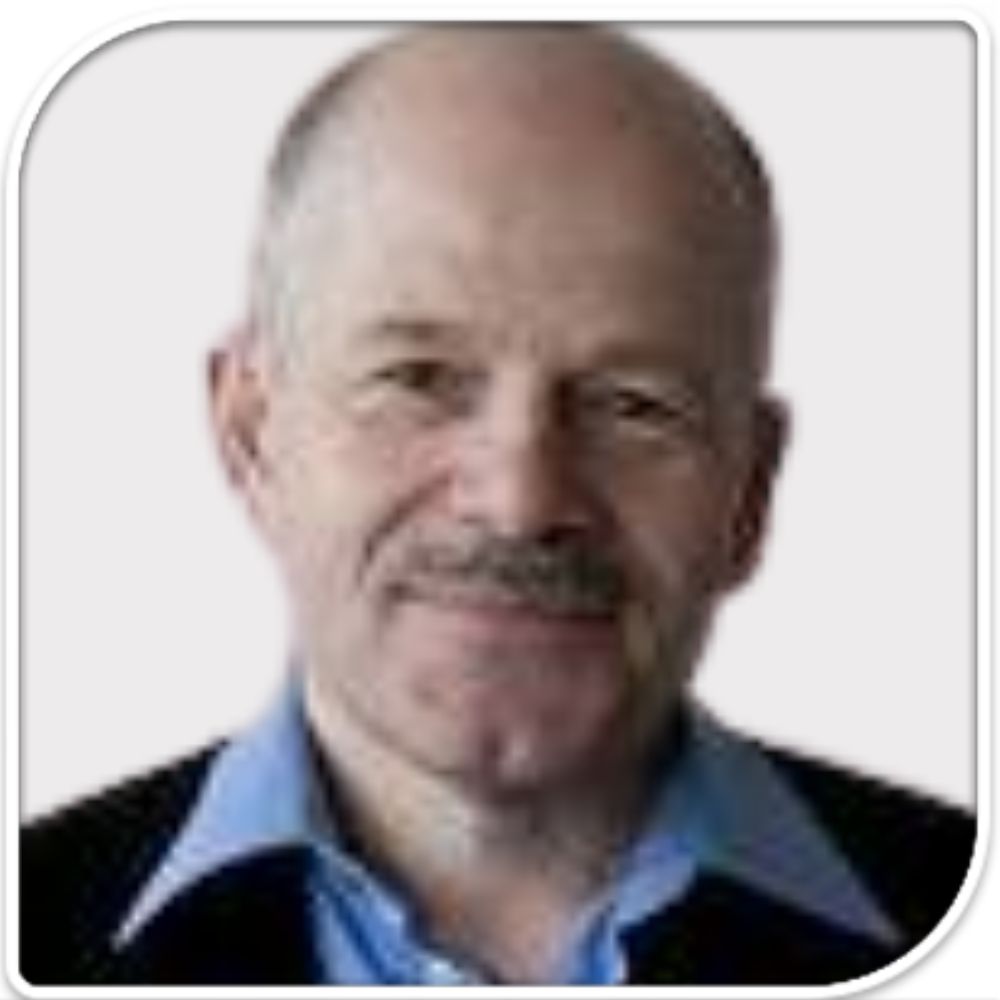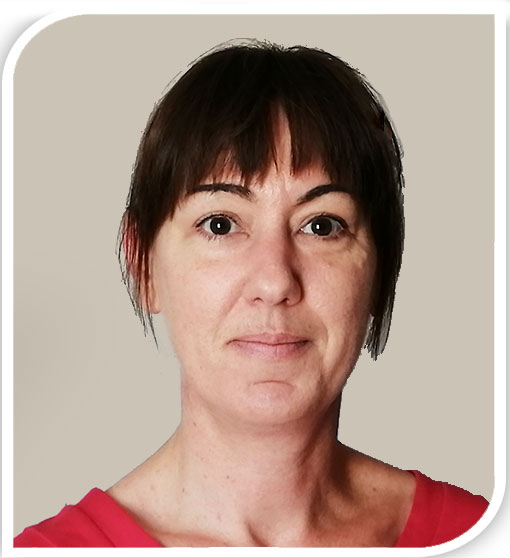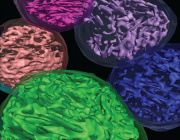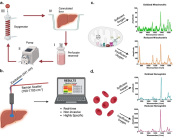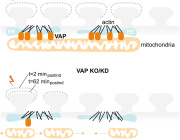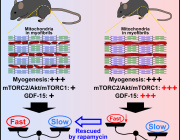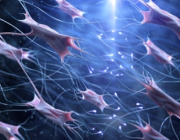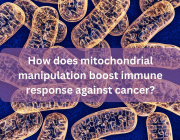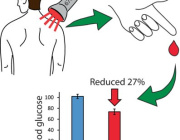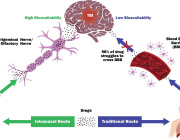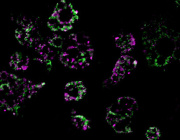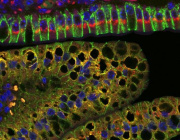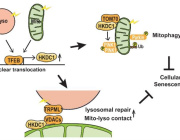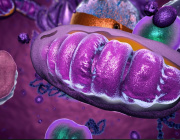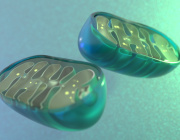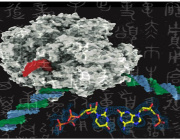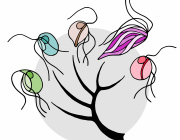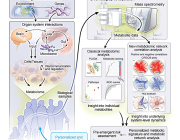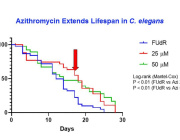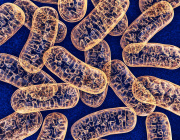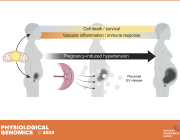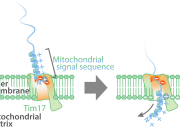Targeting Mitochondrial Activity in Liver in Disease: Barriers and Perspectives
 Prof. María Luz Martínez-Chantar, CIC bioGUNE, Spain, will join Targeting Mitochondria 2023 to present a talk entitled: "Targeting Mitochondrial Activity in Liver in Disease: Barriers and Perspectives".
Prof. María Luz Martínez-Chantar, CIC bioGUNE, Spain, will join Targeting Mitochondria 2023 to present a talk entitled: "Targeting Mitochondrial Activity in Liver in Disease: Barriers and Perspectives".
Mitochondrial dysfunction is a critical factor contributing to the pathogenesis and progression of chronic liver diseases. This study conducted by Prof. Martínez-Chantar aims to elucidate key players, causative factors, and consequences of mitochondrial dysfunction in the context of liver health.
Specifically, she and her team explore the potential therapeutic benefits of enhancing mitochondrial activity by modulating genes related to the electron transport chain, mitochondrial metabolism and cation modulators in the liver.
The findings provide compelling evidence supporting different genes as a promising therapeutic approach that not only ameliorates liver injury but also fosters liver regeneration.
Join Targeting Mitochondria 2023 to learn more about Prof. Martínez-Chantar's interesting findings.
About Prof. Martinez-Chantar
Professor Martinez-Chantar has an extensive experience in the study of liver biology and disease with a high-level track of productivity in the 1st decile journals like Nature Communications, Cell Metabolism, Hepatology, Journal of Hepatology and Gastroenterology. She has been continuously supported by competitive public and private funding, both national and international, including NIH. She coordinates the Translational Area of the National Institute for the study of Liver & Gastrointestinal Diseases and is in the SAB of the Molecular Medicine Center Nice, IDIVAL and IDIBAPS. She shows extensive participation in different networks (CibereHD, Women in Hepatology: International Consortium, Hepamet Registry, MetaboCancer Excellence Network and diverse EU COST actions). Her contracts with pharmas, as AGIOS, Mitotherapeutix, Takeda or Silence Therapeutics, led to 5 patent applications and 4 licensed products. Her collaboration with OWL Metabolomics led to the development of OWLiver® Care and OWLiver®, non-invasive assays for NASH diagnosis.
Targeting Mitochondria 2023 Congress
October 11-13, 2023 - Berlin, Germany
Targeting Mitochondria Based on Mitochondrial Drug Delivery Systems (DDS)

Under its guiding slogan “The future of medicine will come through mitochondria”, the World Mitochondria Society proudly presents Targeting Mitochondria 2023 speakers. This conference gathers the brightest minds, leaders and actors in mitochondrial research.
At the forefront of this gathering is Prof. Yuma Yamada of the Faculty of Pharmaceutical Sciences, Hokkaido University, who will give a standout presentation on “Targeting Mitochondria Based on Mitochondrial Drug Delivery Systems (DDS).” Prof. Yamada’s recent recognition as the recipient of the American Pharmacists Association’s 2022 Ebert Prize—the oldest and one of the most prestigious pharmacy awards in the US—further cements his standing in the field.
A Significant Advancement in Mitochondrial Research: The MITO-Porter
Addressing challenges that have spanned a decade in mitochondrial drug delivery, Prof. Yamada’s development of the MITO-Porter is especially noteworthy. This cutting-edge nano DDS is meticulously engineered to transport macromolecular cargos directly into mitochondria via membrane fusion. The MITO-Porter represents not just a technological marvel but a beacon for the future of mitochondrial medicine.
Although various mitochondrial drug delivery systems have emerged over the years, many have encountered hurdles. The MITO-Porter, with its groundbreaking approach, navigates these challenges, heralding a new era of therapeutic potential.
In his presentation, Prof. Yamada will provide an in-depth overview of the MITO-Porter, elucidating its design, capabilities, and forward-looking applications. Attendees will be enriched with insights into the contemporary landscape of mitochondrial DDS and will experience the profound impact of the MITO-Porter in the domain of mitochondrial therapy.
Join Targeting Mitochondria 2023 to learn more about Prof. Yamada's interesting talk.
Targeting Mitochondria 2023 Congress
October 11-13, 2023 - Berlin, Germany
Mitochondrial Transplantation: What's Next?
 Dr. James D. McCully, from The Harvard Medical School Department of Cardiac Surgery Boston Children’s Hospital, USA, will join us this year to present his most recent findings: "Mitochondrial Transplantation What's Next?".
Dr. James D. McCully, from The Harvard Medical School Department of Cardiac Surgery Boston Children’s Hospital, USA, will join us this year to present his most recent findings: "Mitochondrial Transplantation What's Next?".
Join Targeting Mitochondria 2023 to learn more about Dr. McCully's interesting talk.
Targeting Mitochondria 2023 Congress
October 11-13, 2023 - Berlin, Germany
Why a WMS Task Force?
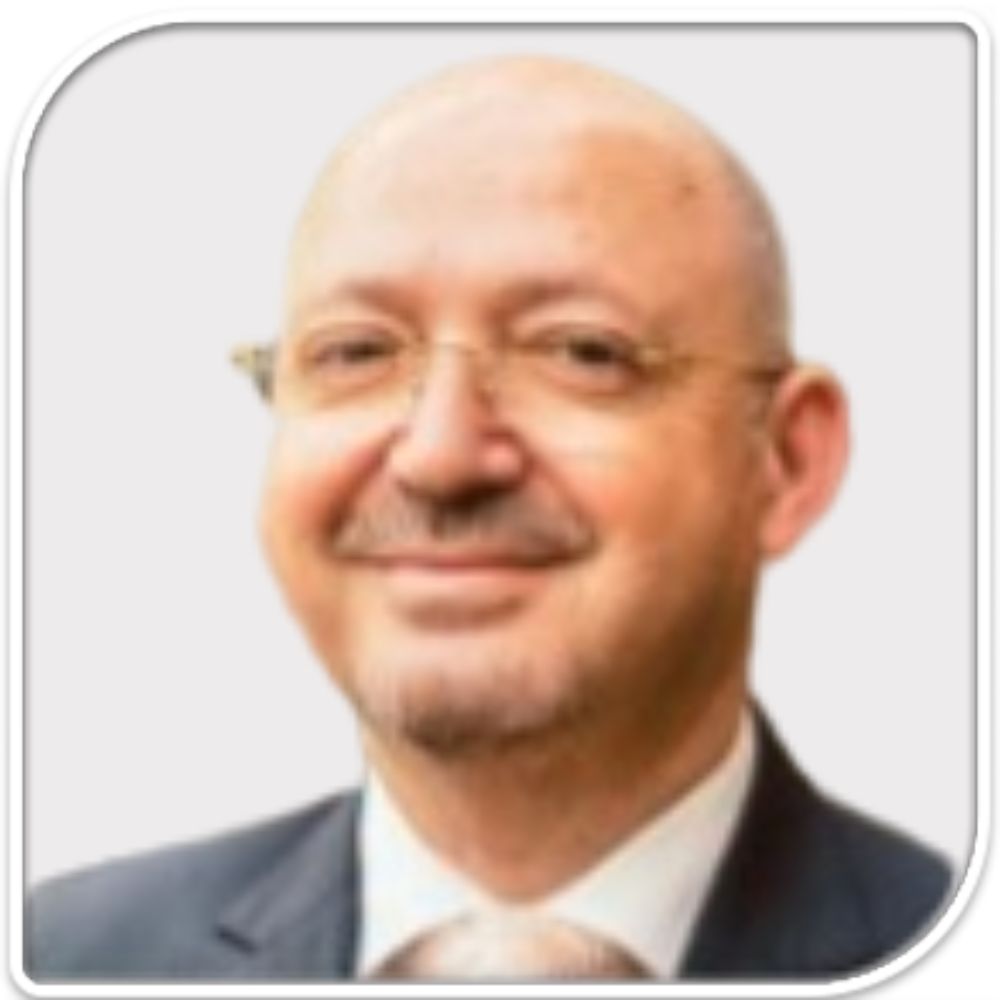 Prof. Marvin Edeas, Institut Cochin, Université de Paris, France, will join Targeting Mitochondria 2023 to explain further on : "Why a WMS Task Force?".
Prof. Marvin Edeas, Institut Cochin, Université de Paris, France, will join Targeting Mitochondria 2023 to explain further on : "Why a WMS Task Force?".
Join Targeting Mitochondria 2023 to learn more about Prof. Edeas's interesting talk.
Targeting Mitochondria 2023 Congress
October 11-13, 2023 - Berlin, Germany
MNRR1/CHCHD2 and Mitochondrial Dysfunction in Disease
 Dr. Lawrence Grossman, Wayne State University, USA will join the Targeting Mitochondria 2023 Congress and give a presentation entitled "MNRR1/CHCHD2 and Mitochondrial Dysfunction in Disease".
Dr. Lawrence Grossman, Wayne State University, USA will join the Targeting Mitochondria 2023 Congress and give a presentation entitled "MNRR1/CHCHD2 and Mitochondrial Dysfunction in Disease".
MNRR1 levels are reduced in several diseases that contain mitochondrial dysfunction. Either genetic or pharmacological restoration of MNRR1 levels also restores function, both in a cell and an animal model. The disease induced reduction of MNRR1 takes place by both transcriptional and post transcriptional mechanisms in different disease models.
Join Targeting Mitochondria 2023 to learn more about Dr. Grossman's exciting talk. You can submit a related abstract here.
Targeting Mitochondria 2023 Congress
October 11-13, 2023 - Berlin, Germany
Stealth Therapeutics Will Exhibit during Targeting Mitochondria 2023
 Stealth Therapeutics will showcase their latest innovations in mitochondrial medicine during Targeting Mitochondria 2023 in Berlin the October.
Stealth Therapeutics will showcase their latest innovations in mitochondrial medicine during Targeting Mitochondria 2023 in Berlin the October.
Dr. David A. Brown is Vice President of Mitochondrial Research at Stealth BioTherapeutics, and will give a short oral talk on “Translational insights from targeting mitochondria in rare diseases”.
Dr. Brown's talk will include an overview of Stealth’s clinical programs to date, including updates on targeting rare mitochondrial diseases in several Phase 2/3 clinical trials, as well as emerging approaches to mitigate mitochondrial dysfunction in pathologies.
About Stealth BioTherapeutics
Stealth BioTherapeutics is a clinical-stage biotechnology company focused on the discovery, development, and commercialization of novel therapies for diseases involving mitochondrial dysfunction. Dysfunctional mitochondria are centrally involved in a number of rare genetic diseases and many common age-related diseases, typically involving organ systems with high energy demands such as the eye, the neuromuscular system, the heart and the brain.

World Mitochondria Society
14th Targeting Mitochondria 2023 Congress
October 11-13, 2023 - Berlin, Germany
LinkedIn | Facebook
Internalization of Exogenous Mitochondria for Endothelial Corneal Dystrophy Treatment
 Dr. Patrick J. Rochette from Université Laval, Canada will join the Targeting Mitochondria 2023 Congress and give a presentation entitled "Internalization of Exogenous Mitochondria for Endothelial Corneal Dystrophy Treatment".
Dr. Patrick J. Rochette from Université Laval, Canada will join the Targeting Mitochondria 2023 Congress and give a presentation entitled "Internalization of Exogenous Mitochondria for Endothelial Corneal Dystrophy Treatment".
Fuchs' endothelial corneal dystrophy (FECD), a degenerative ocular disease, causes progressive vision loss that can lead to blindness. It is the leading cause of corneal transplantation, but the scarcity of grafts hinders its treatment. Dr. Rochette and his team have previously demonstrated a vicious cycle leading to FECD progression in which the mitochondria is central.
They have tested whether transplanting healthy mitochondria into FECD cells would improve pathological molecular markers of the disease. Using corneal endothelium explants from FECD patients, they demonstrated that incorporation of exogenous mitochondria into FECD cells by co-incubation reduces oxidative stress, increases mitochondrial membrane potential, and reduces mitophagy. In addition, internalization of exogenous mitochondria significantly reduces apoptosis.
Taken together, these results suggest that the internalization of exogenous mitochondria reverses the vicious circle involved in FECD, thus revealing a much-needed novel treatment alternative for FECD.
Join Targeting Mitochondria 2023 to learn more about Dr. Rochette's exciting talk. Read more about Dr. Rochette's research.
Targeting Mitochondria 2023 Congress
October 11-13, 2023 - Berlin, Germany
Cardiac MitoMed: From Bench to Bedside
 Dr. Sang-Bing Ong from The Chinese University of Hong Kong, China, will join the Targeting Mitochondria 2023 Congress and give a presentation entitled "Cardiac MitoMed: From Bench to Bedside".
Dr. Sang-Bing Ong from The Chinese University of Hong Kong, China, will join the Targeting Mitochondria 2023 Congress and give a presentation entitled "Cardiac MitoMed: From Bench to Bedside".
Cardiovascular disorders remain the leading cause of death and disability worldwide. The extent of cardiac cell death and left ventricular systolic function are the strongest predictors of morbidity and mortality following cardiac disorders. Despite optimal therapy, the morbidity and mortality of cardiovascular patients remain significantly high. On this background, there remains an urgent clinical need to discover novel therapies for reducing cardiac injury/death and preserving cardiac function so as to improve health outcomes for cardiovascular patients.
In this regard, the viability of the heart and cardiac function is critically dependent on the ability of cardiac mitochondria to generate the energy required for optimal contractile function. Therefore, preventing mitochondrial dysfunction induced by cardiac disorders constitutes an important therapeutic strategy for preserving cardiac viability and function. As opposed to the conventional belief that the mitochondria are static organelles, mitochondria are actually dynamic whereby they change shapes (morphology) and shift locations in the cell. Studies from the last decade have focused on targeting the mitochondria so as to protect the heart. Nevertheless, results so far have been inconclusive.
Dr. Ong will present data from his team describing our efforts in modulating cardiac mitochondrial morphology to protect the heart against ischemia-reperfusion injury
Join Targeting Mitochondria 2023 to learn more about Dr. Ong's exciting talk.
Targeting Mitochondria 2023 Congress
October 11-13, 2023 - Berlin, Germany
Defining the Molecular Nature of the Mitochondrial permeability transition pore(s)
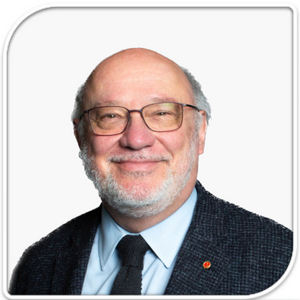 Prof. Paolo Bernardi from the University of Padova, Italy, will join the 14th edition of the World Conference on Targeting Mitochondria 2023 which will be held from October 11th to 13th in Berlin, Germany, and give a talk entitled "Defining the Molecular Nature of the Mitochondrial permeability transition pore(s)".
Prof. Paolo Bernardi from the University of Padova, Italy, will join the 14th edition of the World Conference on Targeting Mitochondria 2023 which will be held from October 11th to 13th in Berlin, Germany, and give a talk entitled "Defining the Molecular Nature of the Mitochondrial permeability transition pore(s)".
Major progress has been made in defining the basis of the mitochondrial permeability transition, a Ca2+-dependent permeability increase of the inner membrane that has puzzled mitochondrial research for almost 70 years. Initially considered an artifact of limited biological interest by most, over the years the permeability transition has raised to the status of regulator of mitochondrial ion homeostasis and of druggable effector mechanism of cell death. The permeability transition is mediated by the opening of channel(s) modulated by matrix cyclophilin D, the permeability transition pore(s) (PTP). The field has received a new impulse from the hypothesis that the PTP may originate from a Ca2+-dependent conformational change of F-ATP synthase and from the reevaluation of the long-standing hypothesis that it originates from the adenine nucleotide translocator. Prof. Bernardi will discuss potential mechanisms for PTP formation and the role of the permeability transition in pathophysiology.
Join Targeting Mitochondria 2023 to learn more about Prof. Bernardi's interesting talk.
Targeting Mitochondria 2023 Congress
October 11-13, 2023 - Berlin, Germany
Restoration of Mitochondrial Homeostasis provides Glaucoma Neuroprotection
Prof . Arupratan Das from Indiana University School of Medicine, USA will join the Targeting Mitochondria 2023 congress and present his study on "Restoration of Mitochondrial Homeostasis provides Glaucoma Neuroprotection".
. Arupratan Das from Indiana University School of Medicine, USA will join the Targeting Mitochondria 2023 congress and present his study on "Restoration of Mitochondrial Homeostasis provides Glaucoma Neuroprotection".
Neurons are highly energy-demanding due to their constant need for neurotransmission and synaptic activity. Mitochondria are the primary source for cellular energy currency adenosine triphosphate (ATP), and dysfunctional mitochondria present a key pathological condition for the central nervous system (CNS) disorders such as glaucoma, amyotrophic lateral sclerosis (ALS) and Parkinson’s disease. Retinal ganglion cells (RGCs) of the optic nerve are particularly vulnerable to mitochondrial dysfunctions as they need steady supply of ATP for varying frequency of action potential firing through the long unmyelinated axons. Here, using human stem cell differentiated retinal ganglion cells (hRGCs) we have shown hRGCs are efficient in degrading damaged mitochondria and producing simultaneously healthy organelle for maintaining mitochondrial homeostasis.
However, a glaucomatous Optineurin mutant (E50K) hRGCs show high ATP production rate with fewer mitochondrion compared to the wild-type neurons causing mitochondrial swelling and disruption of homeostasis. Remarkably, enhancing mitochondrial biogenesis through pharmacological inhibition of the Tank binding kinase 1 (TBK1) restores energy homeostasis, mitigates mitochondrial swelling with neuroprotection against acute mitochondrial damage for glaucomatous hRGCs, revealing a novel neuroprotection mechanism.
Join Targeting Mitochondria 2023 to learn more about Prof. Arupratan Das's talk. Read more about Prof. Das's research.
Targeting Mitochondria 2023 Congress
October 11-13, 2023 - Berlin, Germany
The role of Mitochondria in Liver Regeneration

Prof. Jiri Neuzil from Griffith University, Australia will join the Targeting Mitochondria 2023 congress which will be held on October 11-13, 2023 in Berlin, Germany, and will present a talk entitled "The role of Mitochondria in Liver Regeneration".
Prof. Neuzil focuses on the role of mitochondria in cancer. Major projects of his laboratory are mitochondria as a target for cancer therapy; horizontal transfer of mitochondria; the role of respiratory complexes in the biology and function of mitochondria; role of metabolic switch in malignant transformation and tissue regeneration. He developed a novel anti-cancer drug, mitochondrially targeted tamoxifen (MitoTam), an analogue of tamoxifen tagged with a delocalized cation (triphenylphosphonium) that preferentially targets the inner mitochondrial membrane of cancer cells, interfering with mitochondrial respiratory complex I. MitoTam has recently underwent Phase I/Ib clinical trial with efficacy against renal cell carcinoma.
Prof. Neuzil obtained his Ph.D. from the Institute of Microbiology in Prague, then he was a post-doctoral fellow at the Heart Research Institute in Sydney, Australia. After 3 years at the University of Munich as a Junior Group Leader and one year as a visiting researcher at the University of Linkoping (Sweden), he got the position of Senior lecturer in 2002 (later on Associate Professor and Professor) at Griffith University in Southport, Qld, Australia. Since 2006, he is a Group Leader at the Institute of Biotechnology, Czech Academy of Sciences in Prague. He has published over 245 scientific papers and his HI is 62.
Join Targeting Mitochondria 2023 to learn more about Prof. Neuzil's talk.
Targeting Mitochondria 2023 Congress
October 11-13, 2023 - Berlin, Germany
Protein Transport across Mitochondrial Membranes
 Dr. Peter Rehling, from University Medical Center Göttingen, Germany will join the Targeting Mitochondria 2023 congress and present his research on "Protein Transport across Mitochondrial Membranes".
Dr. Peter Rehling, from University Medical Center Göttingen, Germany will join the Targeting Mitochondria 2023 congress and present his research on "Protein Transport across Mitochondrial Membranes".
In his talk, Dr. Rehling will share his latest research on the molecular mechanisms of protein import into mitochondria, focusing on recent advances in understanding the role of protein chaperones and translocases.
Join Targeting Mitochondria 2023 to learn more about Prof. Rehling's interesting talk.
Targeting Mitochondria 2023 Congress
October 11-13, 2023 - Berlin, Germany
Mitochondrial Stress as a Central Biological Hub for Spaceflight Impact
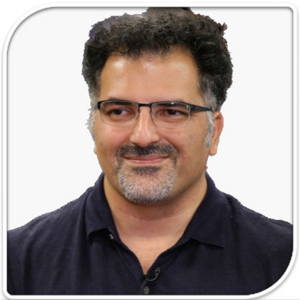 During the Targeting Mitochondria 2023 congress, Dr. Afshin Beheshti, Blue Marble Space Institute of Science, USA will give a presentation entitled "Mitochondrial Stress as a Central Biological Hub for Spaceflight Impact".
During the Targeting Mitochondria 2023 congress, Dr. Afshin Beheshti, Blue Marble Space Institute of Science, USA will give a presentation entitled "Mitochondrial Stress as a Central Biological Hub for Spaceflight Impact".
Join Targeting Mitochondria 2023 to learn more about Dr. Beheshti's talk.
Targeting Mitochondria 2023 Congress
October 11-13, 2023 - Berlin, Germany
Personalized Medicine in Mitochondrial Health and Disease: Myth and Reality
 Prof. Ciro Leonardo Pierri from the University of Bari, Italy, will join the 14th edition of the World Conference on Targeting Mitochondria 2023, held in Berlin, Germany, from October 11th to 13th. In this conference, Prof. Pierri will give a talk entitled "Personalized Medicine in Mitochondrial Health and Disease: Myth and Reality.
Prof. Ciro Leonardo Pierri from the University of Bari, Italy, will join the 14th edition of the World Conference on Targeting Mitochondria 2023, held in Berlin, Germany, from October 11th to 13th. In this conference, Prof. Pierri will give a talk entitled "Personalized Medicine in Mitochondrial Health and Disease: Myth and Reality.
Mitochondrial diseases may result from mutations affecting nuclear or mitochondrial genes, encoding mitochondrial proteins, or non-protein coding mitochondrial RNA. Despite the great variability of affected genes, in the most severe cases, a neuromuscular degenerative phenotype is observed, and no specific therapy exists for a complete recovery from the disease.
The most used treatments are symptomatic based on the administration of antioxidant cocktails in combination with antiepileptic/antipsychotic drugs. Unfortunately, antioxidant therapies have met limited success and it is still urgent to highlight new/real pharmacological targets and to design/identify highly selective/efficient drugs to rescue mitochondrial-impaired pathways. In this context, very little attention was dedicated to proteins responsible for the crosstalk between mitochondria and cytoplasm such as mitochondrial transporters (i.e., SLC25A family members) and FAD/NADH dehydrogenases (i.e., AIF), playing a crucial role in the maintenance of metabolites and oxidative balance, as well as in the regulation of mitochondrial apoptosis.
Prof. Pierri will discuss molecular aspects of the limited success of antioxidant therapies, and will illustrate the role of mitochondrial transporters and FAD/NADH dehydrogenases in mitochondrial function for the possible development of new MD treatments.
Join Targeting Mitochondria 2023 to learn more about Prof. Perrie's talk.
Targeting Mitochondria 2023 Congress
October 11-13, 2023 - Berlin, Germany
Winner of the Best Mitochondria Image 2022: Erminia Donnarumma, Institut Pasteur
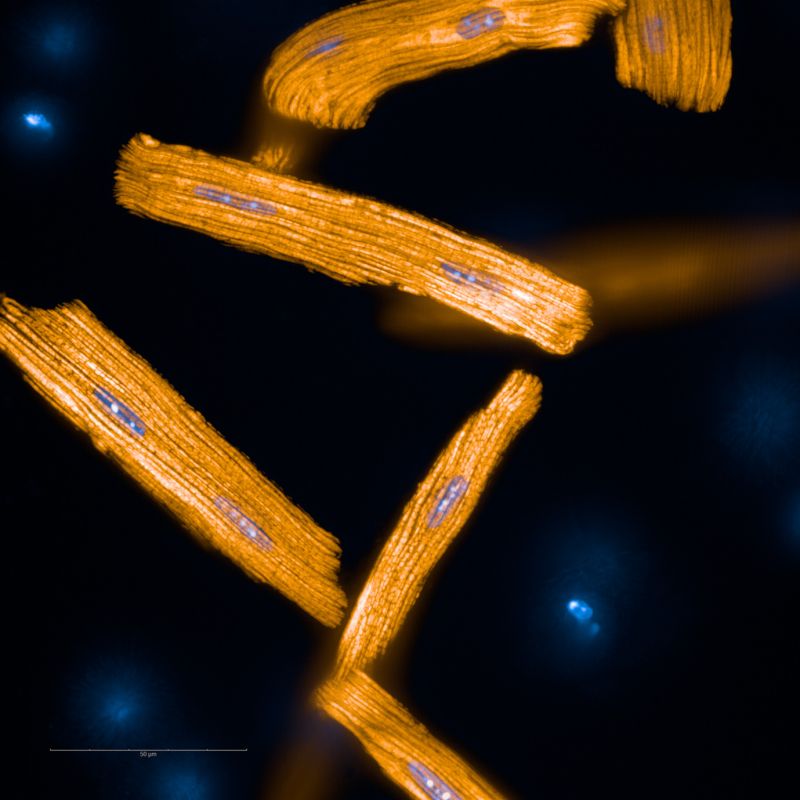
The World Mitochondria Society congratulates the winner of the Best Mitochondria Image 2022 Erminia Donnarumma, Institut Pasteur, France. Her image entitled "Mitochondria run parallel in mature cardiomyocytes" shows: Adult primary cardiomyocytes (mouse) stained with TMRE (mitochondria, orange) and NucBlue (nuclei, blue).
 Dr. Donnarumma performed her PhD (2012-2015) in Pharmaceutical Sciences between the University of Naples Federico II in Italy and the Cardiovascular Center of Excellence in New Orleans (USA). Her work focused on the identification of new medications that could act or improve the crosstalk between the hydrogen sulfide (H2S) and nitric oxide (NO) signaling in small and large animal models of heart failure induced by myocardial ischemia and reperfusion injury. After this time, she nucleated my interest in mitochondria as therapeutic target in cardiac diseases. She therefore moved to France in 2016 to join the Wai Lab at the Institut Pasteur.
Dr. Donnarumma performed her PhD (2012-2015) in Pharmaceutical Sciences between the University of Naples Federico II in Italy and the Cardiovascular Center of Excellence in New Orleans (USA). Her work focused on the identification of new medications that could act or improve the crosstalk between the hydrogen sulfide (H2S) and nitric oxide (NO) signaling in small and large animal models of heart failure induced by myocardial ischemia and reperfusion injury. After this time, she nucleated my interest in mitochondria as therapeutic target in cardiac diseases. She therefore moved to France in 2016 to join the Wai Lab at the Institut Pasteur.
Dr. Donnarumma stated: "The main focus of my work was to investigate the role of Mitochondrial Fission Process 1 (MTFP1) in mitochondrial dynamics and the heart homeostasis. I discovered that MTFP1 loss in cardiomyocytes impairs mitochondrial inner membrane integrity leading to impaired mitochondrial bioenergetics, cardiomyocyte death and inflammatory dilated cardiomyopathy. My on-going and future researches aim at the understanding how mitochondria trigger inflammation in cardiomyocytes and the relevance of the sex bias that exists at the level of mitochondria for the development of sex- specific cardiac diseases".
You will be able to submit your images for #BestMitochondriaImageContest 2023 shortly.
World Mitochondria Society
14th Targeting Mitochondria 2023 Congress
October 11-13, 2023 - Berlin, Germany
LinkedIn | Facebook
